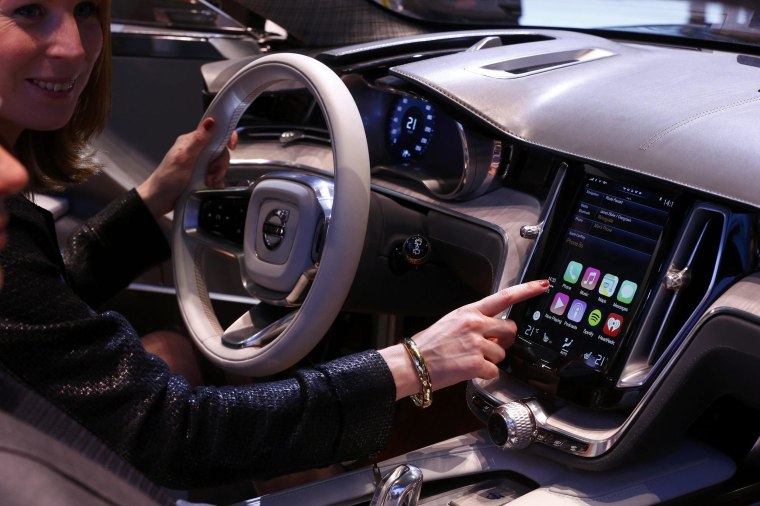Add car-hacking to the list of motorists' fears.
A University of Michigan survey shows that Americans are nervous about whether new computer technology in vehicles could be hacked and the data stolen.
A majority of Americans, Australians and Britons believe that so-called “connected-vehicle” technology will make driving safer, but most are also concerned about security and privacy, according to the survey.

Researchers from the university's Transportation Research Institute, or UMTRI, polled 1,600 motorists about connected vehicles. More than three-fourths believe that Internet connectivity in connected vehicles is important.
However, 30 percent of the online respondents in the U.S., Australia and Britain also said they are "very concerned" about the potential for breaches in vehicle security by hackers and also worry about data privacy as the technology could allow the tracking of vehicle speed and location.
Another 37 percent of respondents are "moderately concerned" about the same issues and nearly a quarter are "slightly concerned," according to the survey results.
German automaker Daimler’s answer to the threat has been heavy investment in security systems and protection and Ford has said it is actively working on protecting the privacy of any motorist using its vehicles.
Independent studies by the U.S. Department of Transportation have also indicated that automobiles are susceptible to hacking. The problem could grow more serious as manufacturers add more capabilities to their cars – including the ability to reprogram engine control systems to correct software problems.
Meanwhile, a growing number of makers, including General Motors and Hyundai, now offer remote start and remote door unlocking features that could become the target of hackers.
The UMTRI study said that in addition to security and privacy fears, a majority of the respondents also expressed concern about system failure and performance, especially during bad weather, and that drivers will rely too much on the technology or will be distracted by it.
Ford Upgrades, Offers 1st Look at New Focus Sedan
Honda Named Best Overall Brand
